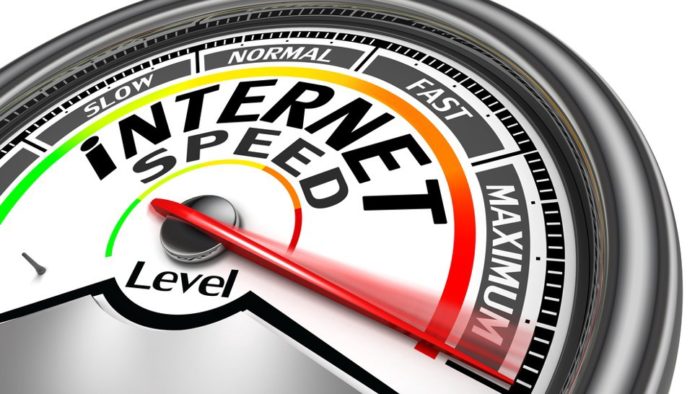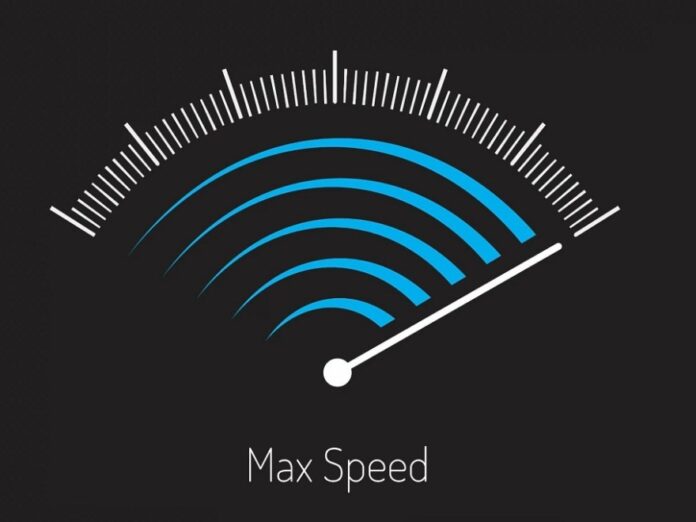The requirement for internet is increasing day by day all over the world. Whether we use it for business or entertainment, we all need it. But the internet speed can vary for many reasons. Determining the speed of the internet you need is nothing complicated. It starts with the number of people who will use it, what they will use it for, and what their requirements are.
Numerous internet providers offer a wide range of internet services with different options for speed. In order not to get confused in the endless offer and choose too expensive or too slow internet, we will help you. Let’s find best possible option for you.
First, let’s start with some of the general things that make up the speed of the internet, because speed is not just one in this case.

Ping
Ping indicates the delay, that is, the response of a file traveling from your computer to the server and back. The value is usually expressed in milliseconds. The lower the value, the better your internet connection. The optical internet has the least delay.
Download
The download represents the amount of data your internet connection can download in seconds from the server. The larger the data in question, the better/faster the download. This direction is important when doing 90% of the activity on the Internet. Measuring download speeds as well as pings and uploads can be accurately measured through many free online applications.

Upload
Upload shows the amount of data that your internet connection can send to the secondary on the server. Upload direction is important for video calls and uploading files to the cloud, or live streaming to YouTube or twitch. As we increasingly use the internet for these reasons, it is very important to pay attention to the upload, not just the download.
Latency
Latency is the speed at which data travels between the origin and its destination. It’s a physical distance that has to be traveled, so if you play games on a server in a completely different part of the world, the latency will be far greater than for someone close to the server.
Of course, you should always assume that there will be times when everyone in the home will use the internet for their needs at the same time, and consider all the devices that will be connected to the network, such as TV receivers and consoles.

Good and Fast internet
According to the Internetnearme.com, good speed that meets average family requirements is about 25mbps. While this is considered good speed, there is a chance that it will not be sufficient if it is used more or has more users. High speed internet is considered if you have over 200 mbps download. This will allow you to unimpeded 4k streaming, gaming, etc.
Currently, the fastest internet available to the general population, not just for military purposes, is 2000 mbps or 2gbps and is available in a very small area. Also, 99% of people have no need for this speed even close.
Gaming
Without 5mbps, don’t even try to play any more challenging games. For a pleasant experience, it would be best if you have a range of 15 to 25mbps, if not more. Speed is very important, but latency and ping also play a big role. As far as ping is concerned, it must be below 100 milliseconds, and best under 50.
Not all types of internet are equally good for gaming even though they seem to have the same speed. The best choices are cable and optical internet. Satellite is usually not the best choice. It may have excellent download speed, but usually has to high latency. The distance the signal must travel from satellite to user is huge. In isolated areas, satellite internet may be the only choice, but don’t expect to be able to play sports or shooting games, but less demanding ones such as strategies, card games, casinos and alike. Even the game may be completely blocked if it is too demanding.
The best choice when it comes to gaming is to use a cable or have a very strong WiFi router so you don’t lose speed for that reason.

Streaming
Nowadays, more and more people are streaming on many sites. From gaming to sports events or whatever. It has become a very lucrative business providing people money for living and therefore they do not want problems with the speed of the internet, first and foremost with upload.
For a stream of standard quality, 3 to 4 mbps may be sufficient. But viewer requirements are growing, so FULL HD, and increasingly ULTRA HD and 4K are becoming standard. The minimum required is 25mbps, and ideally around 40 mbps.
YouTube, Netflix, AmazonPrime, NFL Gamepass and other streaming services all have similar recommendations that at least 8mbps is required for HD streaming, and over 15 if multiple people watch at once. With image quality, of course, the demand and consumption of the internet is increasing, so it won’t be difficult for you to calculate yourself what speed you need.
Work
If you work from home and your job is mostly based on calls via skype or similar, you won’t need particularly fast internet. The usual speed for households should meet the needs. But if it’s an IT business, for example, it’s very possible that you’ll need more speed to upload large files.
In the case of companies, the needs are huge because of the very large number of users and jobs that are going on. In this case, the providers will offer you special offers.

Mobile Internet
We are just getting used to the capabilities of the 4g mobile network (LTE), and the fifth generation will soon be available to us. The fifth generation of mobile internet brings us very high speeds, more coverage and responsiveness. It will be 10 to 100 times higher than what is currently available. In recent months, the widespread use of the 5G network has begun, for now only in major cities of the most developed countries, but it can certainly be expected to expand soon. There have been some controversies about the impact on human and animal health, but it has been proven not harmful.
Now that you have all this information, you can very easily calculate the minimum, ideal and maximum amount of internet required for your home or business.









